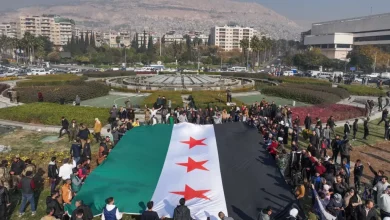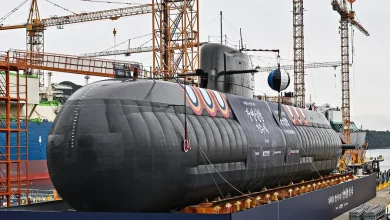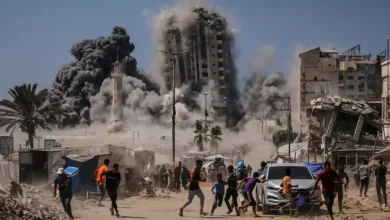
The conflict between Iran and Israel has entered its second week with no diplomatic breakthrough achieved.
On Friday, top European diplomats met with Iran’s Foreign Minister in Geneva to discuss a solution for Tehran’s nuclear program, but the talks has yielded no tangible results although it left the door open for future discussions.
Geneva Talks
The Foreign Ministers of France, Germany and the UK, collectively known as the E3, and the European Union’s foreign policy chief, Kaja Kallas, met with the Iranian Foreign Minister, Abbas Araghchi, in Geneva, in the first face-to-face meeting since the conflict erupted.
After the meeting, which lasted for nearly 4 hours, the European diplomats expressed hope for future discussions on all questions relevant to Iran’s nuclear program and broader issues, they said in a joint statement. They have not revealed a date for the next round of talks.
The ministers said that they discussed avenues towards a negotiated solution to Iran’s nuclear program, reiterating “their longstanding concerns about Iran’s expansion of its nuclear program, which has no credible civilian purpose.”
Moreover, they voiced grave concern over the escalation of tensions in the Middle East and reaffirmed their firm commitment to Israel’s security, urging all sides to refrain from escalation and find a negotiated solution to ensure that Iran never obtains or acquires a nuclear weapon.
No Negotiations under Fire
On his part, Araghchi said he was open for more talks with the E3 and the EU, the Associated Press (AP) reported. The Iranian Minister also condemned Israeli attacks on Iran’s nuclear facilities, expressing “grave concern” over European “non-condemnation” of such attacks.
Moreover, Araghchi confirmed that Tehran will not engage in negotiations with Washington as long as Israeli attacks continue. “Iran is ready to consider diplomacy if aggression ceases and the aggressor is held accountable for its committed crimes,” he told reporters after the Geneva meeting.
The US President, Donald Trump, has given Iran two weeks to reach a deal before he makes his decision on joining the conflict to Israel’s side.
On Thursday, the White House press secretary, Karoline Leavitt, delivered a message from Trump: “Based on the fact that there’s a substantial chance of negotiations that may or may not take place with Iran in the near future, I will make my decision whether or not to go within the next two weeks.”
Betrayal to Diplomacy
Araghchi reiterated Iran’s position on declining negotiations while Israeli attacks continue during an interview with NBC News. He said that his country is “uncertain whether it can trust the US in diplomatic talks” following Israel’s attacks on Iran days before a scheduled talks with American officials.
Furthermore, Iran’s top diplomat suggested that the US used negotiations as a cover for Israeli attacks on Iran. “So they had perhaps this plan in their mind, and they just needed negotiations perhaps to cover it up. We don’t know how we can trust them anymore. What they did was, in fact, a betrayal to diplomacy,” he said.
Araghchi added that the Trump administration has to “show their determination for going for a negotiated solution,” saying that Israel must halt its aggression before any talks. “We’re not prepared to negotiate with them anymore, as long as the aggression continues,” he said.
“I think if Americans are serious to go back to diplomacy, what it needs is only a telephone call from Washington to Tel Aviv to stop everything. They can stop this process very quickly, and then we will consider diplomacy once again,” the Iranian Foreign Minister said.
Israel will not Halt Fighting
Israel launched its military operation against Iran on June 13, 2025 to eliminate Tehran’s nuclear program and prevent the country from obtaining a nuclear weapon. The two countries have traded intensified aerial and missile attacks since then, raising fears that the conflict could spiral into an all-out war.
The Israeli Prime Minister, Benjamin Netanyahu, insisted that the attacks would continue “for as long as it takes” to eradicate what he described as “the existential threat of Iran’s nuclear program and arsenal of ballistic missiles,” according to AP.
Similarly, Israel’s Ambassador to the UN, Danny Danon, pledged to continue attacks on Iran until eliminating its nuclear threat, reported Sky News.
At the UN Security Council meeting on Friday, Danon said: “We will not stop. Not until Iran’s nuclear threat is dismantled, not until its war machine is disarmed.”





